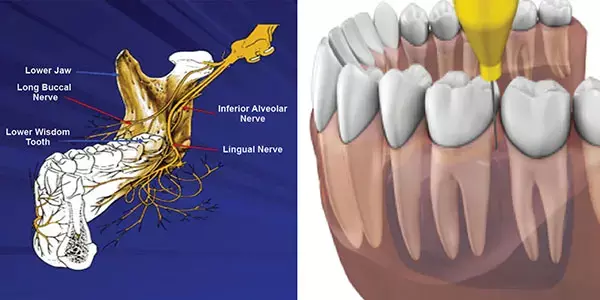- Home
- Medical news & Guidelines
- Anesthesiology
- Cardiology and CTVS
- Critical Care
- Dentistry
- Dermatology
- Diabetes and Endocrinology
- ENT
- Gastroenterology
- Medicine
- Nephrology
- Neurology
- Obstretics-Gynaecology
- Oncology
- Ophthalmology
- Orthopaedics
- Pediatrics-Neonatology
- Psychiatry
- Pulmonology
- Radiology
- Surgery
- Urology
- Laboratory Medicine
- Diet
- Nursing
- Paramedical
- Physiotherapy
- Health news
- Fact Check
- Bone Health Fact Check
- Brain Health Fact Check
- Cancer Related Fact Check
- Child Care Fact Check
- Dental and oral health fact check
- Diabetes and metabolic health fact check
- Diet and Nutrition Fact Check
- Eye and ENT Care Fact Check
- Fitness fact check
- Gut health fact check
- Heart health fact check
- Kidney health fact check
- Medical education fact check
- Men's health fact check
- Respiratory fact check
- Skin and hair care fact check
- Vaccine and Immunization fact check
- Women's health fact check
- AYUSH
- State News
- Andaman and Nicobar Islands
- Andhra Pradesh
- Arunachal Pradesh
- Assam
- Bihar
- Chandigarh
- Chattisgarh
- Dadra and Nagar Haveli
- Daman and Diu
- Delhi
- Goa
- Gujarat
- Haryana
- Himachal Pradesh
- Jammu & Kashmir
- Jharkhand
- Karnataka
- Kerala
- Ladakh
- Lakshadweep
- Madhya Pradesh
- Maharashtra
- Manipur
- Meghalaya
- Mizoram
- Nagaland
- Odisha
- Puducherry
- Punjab
- Rajasthan
- Sikkim
- Tamil Nadu
- Telangana
- Tripura
- Uttar Pradesh
- Uttrakhand
- West Bengal
- Medical Education
- Industry
Preoperative steroids enhance anesthetic effect of inferior alveolar nerve block in mandibular molars with irreversible pulpitis

Preoperative steroids increase anesthetic effect of inferior alveolar nerve block in mandibular molars with irreversible pulpitis suggests a new study published in the Journal of Endodontics
This randomized double-blinded trial aimed to compare the anesthetic success of inferior alveolar nerve blocks (IANBs) with 2% lidocaine in mandibular molars with symptomatic irreversible pulpitis (SIP) after oral premedication of prednisolone, dexamethasone, and ketorolac with placebo.
One hundred eighty-four patients diagnosed with SIP in mandibular molars randomly received prednisolone, dexamethasone, ketorolac, or placebo (n = 46 each) 60 minutes before the administration of an IANB. The access cavity preparation was initiated after successfully confirming lip numbness and two consecutive negative responses to electric pulp testing. The success of the anesthesia was clinically confirmed when pain was absent during the endodontic access or instrumentation. A one-way analysis of variance test was used to compare quantitative variables among the groups, and chi-square tests were used for comparing categorical variables. Binary logistic regression was performed to analyze the relationship of age, preoperative pain, and preoperative medications.
Results
When premedicated with oral dexamethasone, ketorolac, prednisolone, and placebo, the success rate of IANB was determined to be 60.86 %, 65.21 %, 56.52 %, and 21.73 %, respectively. Compared to the placebo, the success rate of IANB was significantly increased when patients were premedicated with prednisolone, dexamethasone, or ketorolac. However, there were no statistically significant differences among prednisolone, dexamethasone, and ketorolac. One individual in the ketorolac group reported gastritis, whereas no adverse effects were reported in the dexamethasone or prednisolone groups.
Conclusions
Preoperative use of oral ketorolac, dexamethasone, or prednisolone may increase the anesthetic efficacy of IANB in mandibular molars with SIP.
Reference:
Vivek Hegde, Srilatha Shanmugasundaram, Samia Shaikh, Nandini Suresh, Frank C. Setzer, Venkateshbabu Nagendrababu, et al. Effect of Preoperative Oral Steroids in Comparison to Anti-inflammatory on Anesthetic Success of Inferior Alveolar Nerve Block in Mandibular Molars with Symptomatic Irreversible Pulpitis—A Double-blinded Randomized Clinical Trial. Published:January 31, 2023DOI:https://doi.org/10.1016/j.joen.2023.01.007
Dr. Shravani Dali has completed her BDS from Pravara institute of medical sciences, loni. Following which she extensively worked in the healthcare sector for 2+ years. She has been actively involved in writing blogs in field of health and wellness. Currently she is pursuing her Masters of public health-health administration from Tata institute of social sciences. She can be contacted at editorial@medicaldialogues.in.
Dr Kamal Kant Kohli-MBBS, DTCD- a chest specialist with more than 30 years of practice and a flair for writing clinical articles, Dr Kamal Kant Kohli joined Medical Dialogues as a Chief Editor of Medical News. Besides writing articles, as an editor, he proofreads and verifies all the medical content published on Medical Dialogues including those coming from journals, studies,medical conferences,guidelines etc. Email: drkohli@medicaldialogues.in. Contact no. 011-43720751


